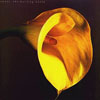Swans, "The Burning World"
 Easily the most maligned release in Swans' discography, there is a definite awkwardness to it, no doubt in part to major label pressures and the heavy hand of Bill Laswell on the production. However, listening to the material in context, it does show the evolution of the band's sound, even with its obtuseness. While it does have a certain "sore thumb" quality to it, it is a necessary evolutionary step for the band that’s flawed, and a flawed Swans album is better than most other bands at their best.
Easily the most maligned release in Swans' discography, there is a definite awkwardness to it, no doubt in part to major label pressures and the heavy hand of Bill Laswell on the production. However, listening to the material in context, it does show the evolution of the band's sound, even with its obtuseness. While it does have a certain "sore thumb" quality to it, it is a necessary evolutionary step for the band that’s flawed, and a flawed Swans album is better than most other bands at their best.
When the more folk-tinged era of Swans was compiled on 1999s Various Failures, a large portion of the material on this album was ignored, reduced to only two tracks, while Love of Life and White Light From the Mouth of Infinity were both significantly represented.This was later fixed with the limited release of Forever Burned, which contained the album in its entirety, along with the tracks left off of Various Failures from the two subsequent albums, but even then the reissue was tough to come by.
One of the biggest issues with this album is the loss of control Michael Gira had to deal with in its creation.Sharing production duties with Bill Laswell and a slew of his session musicians, there was to be a definite Laswell stamp on the sound.For a band without a clearly established identity, this could be a good thing, because for how prolific he was (and is), Laswell knows what he's doing and is certainly not a amateur in the studio.But Swans were not a band trying to find themselves:by this point they were a monolithic force of nature that knew what they wanted to do.Due to the fact that the only Gira, Jarboe, and Norman Westberg are present, they're outnumbered by Laswell's associates, which surely was another strike against the album sounding like a true Swans one.
The acoustic guitars and dark American folk vibes that were toyed with on Children of God are in full effect here, with absolutely no hints of the concrete walls of guitar noise that characterized their previous work.However, too much of the more folk influenced sound they were cultivating is obscured by bouzouki, tablas, and other stereotypical "world music" sounds, which unfortunately strips a lot of the identity away from the disc.
While not challenging by any means, many of these songs still stand as strong compositions:opener "The River That Runs With Love Won't Run Dry" features a rather standard acoustic/electric hybrid sound with the appropriate dose of Gira's apocalyptic lyrics that still gives it a definitive Swans feeling, even if the slew of stringed instruments hint at something else."Let It Come Down" has a similar feel and structure, but features less of the heavy hand of Laswell and his cast of session players in comparison, retaining a sparser sound that fits just as well on their later albums.
There are moments where the sound begins to drift too far into forgettable major label facelessness, such as "Mona Lisa, Mother Earth" and "Saved."While the former retains a bit of darkness that has characterized the band, the latter, with lyrics such as "When sunlight falls on your shoulder/you look like a creature from heaven" are just a bit TOO far from the likes of "Raping A Slave" for its own good.On its own it's not an entirely bad song, but within the greater context of Swans, it sticks out as severely lacking.
The two Jarboe-led tracks, "I Remember Who You Are" and a cover of Blind Faith's "Can't Find My Way Home" are difficult to pinpoint, because depending on my mood, they're either some of her best work with the band, or they feel too forced and histrionic.Both, however, are sparse tracks that also keep away from the over-instrumentation that so many of the other songs suffer from, which is a strength in itself.As I've said though, my opinion of these two changes from day to day as to whether I think they’re good, powerful songs, or exaggerated emotional clichés.
Somewhat ironically, one of the most definitive late-period Swans songs appeared on this album.The closing "God Damn the Sun" encapsulated the Johnny Cash/Leonard Cohen hybrid that the band returned to on subsequent releases, and has been a live staple of Angels of Light since their inception.The intensely depressing lyrics fit the thematic mould of traditional country, but in a very authentic sense, and thus remains a serious downer, yet simultaneously a beautiful song.
It's not hard to see why both Gira and fans have targeted this disc as being a less than stellar album, because it simply does have too much polish to it, in a bad way. While those who followed Swans from the beginning were probably the most dismayed upon this release 21 years ago, because it so clearly signified the death of the heavy, sludgy sound that was on its way out with the previous Children of God album.However, once they were able to better shape the sound on the subsequent releases on Gira's own Young God imprint, it obviously is a necessary evolutionary step in their career.The thing for me is, there's a number of good songs here, they just suffer from cluttered percussion and spotty execution.I have always wondered what The Burning World would sound like without Laswell's session musicians and the influence of Uni/MCA Records on the final release.If this had been a fully Gira-led production on an independent label from the beginning, I think the world would have a much different perspective on it.It is certainly not a shining star in the Swans discography, but it's better than many would lead one to believe.
samples:
 




